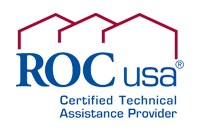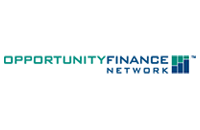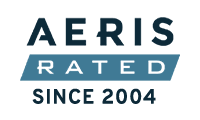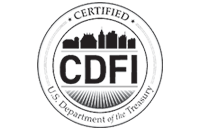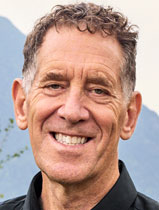
The work of CDFIs has never been more relevant
By Steve Saltzman
Have we ever needed possibility, new beginnings and—dare I say it—hope, more than we do today?
I have just finished my first month in New Hampshire, leading the New Hampshire Community Loan Fund and following in the steps of Julie Eades, a long-time hero to many of us who have committed our lives to community development and social justice.
Nine years ago, I heard Julie speak to what must have been a thousand people in San Antonio. She spoke up for the small community development financial institutions (CDFIs) that pursued deep regional impact instead of becoming national lending platforms.
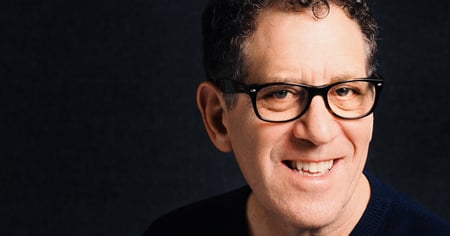
It was at a time when I was flying around the country making loans for a CDFI that is now the country’s largest. While the projects we financed were compelling, our impact in and knowledge of those communities was shallow. The opportunity for deeper impact and a closer connection to the communities in which I work are what drew me to N.H.
In that same talk, Julie described the Community Loan Fund’s success in offering buyers of manufactured homes mortgage loans just like those available for conventional houses. She described that initiative, along with the Community Loan Fund’s pioneering work with resident-owned communities, as part of a larger effort to bend the arc of capitalism toward justice for those who are often invisible and excluded from the financial mainstream. I was inspired by her words then and am motivated by the Community Loan Fund’s legacy now.
Another factor in my decision was this: Of the 1,100 CDFIs in the United States, the Community Loan Fund is among a very small handful that are responsible for nearly every innovation in the field. There’s a lot of power in that legacy and confidence in that track record. That’s a rare and compelling set of tools.
I have already visited seven ROCs; attended a loan closing for a young couple in Allenstown; hiked in the Whites; and ridden bicycles around Southern N.H. with longtime Community Loan Fund supporters, former employees, and investors.
I’ve also engaged in deep conversations with borrowers for whom COVID19 has been a period of personal and economic loss, who want to reclaim their lives but fear they have lost ground they may never recover.
Against this backdrop I ask: Have we ever needed possibility, new beginnings and— dare I say it—hope, more than we do today?
Feeling optimistic
As we emerge from the pandemic fog, and despite the ongoing trauma from mass shootings and violence against those who are Black, Brown, and Asian American Pacific Islanders, I’ve spent my first weeks here feeling optimistic.
Let me explain.
The work of CDFIs has never been more relevant. Our community’s resilience, already stretched by the pandemic, is being stretched further by growing population pressure. In this moment, how we think about our obligations to each other is being renegotiated in the halls of Congress, and in our streets. And the connective tissue that binds us is the beating heart of our work here, which is also the center of our name.
Community.
It’s everywhere. The me-first narratives of skepticism and denial are losing. Journalists on both the left and right tell stories of people organizing!
There was a global news story recently about the plans of the super-rich owners of the world’s best soccer teams to create a super-exclusive league so they could keep a bigger share of TV and advertising revenue. And soccer fans all over the world blasted them, loudly, letting them know they wouldn’t have it. And when they saw the fan reaction, the players and team managers joined them in blasting the owners. And within 72 hours, guess who backed down?
In this climate, how perfect is the example of our resident-owned communities, where homeowners collectively solve the problem of affordable homes? And how perfect is the example of Temple-Wilton Community Farm, where we served as the conduit to help townspeople preserve not only a source of food, jobs, and education, but also the open spaces we all prize.
How perfect is the fact that nearly 700 individual and family investors enable us to do this work?
Wanted: local solutions
If people are going to reclaim their lives and participate in the economic recovery, they’ll need jobs that support and dignify them; homes, not just housing; robust local businesses that circulate the wealth in our communities; services like child care that working people rely on; and environmental sustainability as more people like me move to N.H.
Applying the lessons of ROC, I look forward to joining with communities across the state to coordinate local solutions that increase Black and Latinx homeownership and help people of color and New Americans grow businesses. And I look forward to continuing to collaborate with stakeholders working to mitigate climate change and build a more secure and healthier food supply.
I also want to mention my gratitude to John Hamilton for his stewardship of the organization when the state faced never-imagined economic turmoil resulting from the COVID19 restrictions.
The strength of the Community Loan Fund, and what makes it unique among CDFIs, is its strong and resilient community of supporters. Thank you for being one of them.
I’m looking forward to visiting you, traveling around the state, and collecting ideas about how we can strengthen our communities.
Steve Saltzman is President and CEO of the NH Community Loan Fund.





